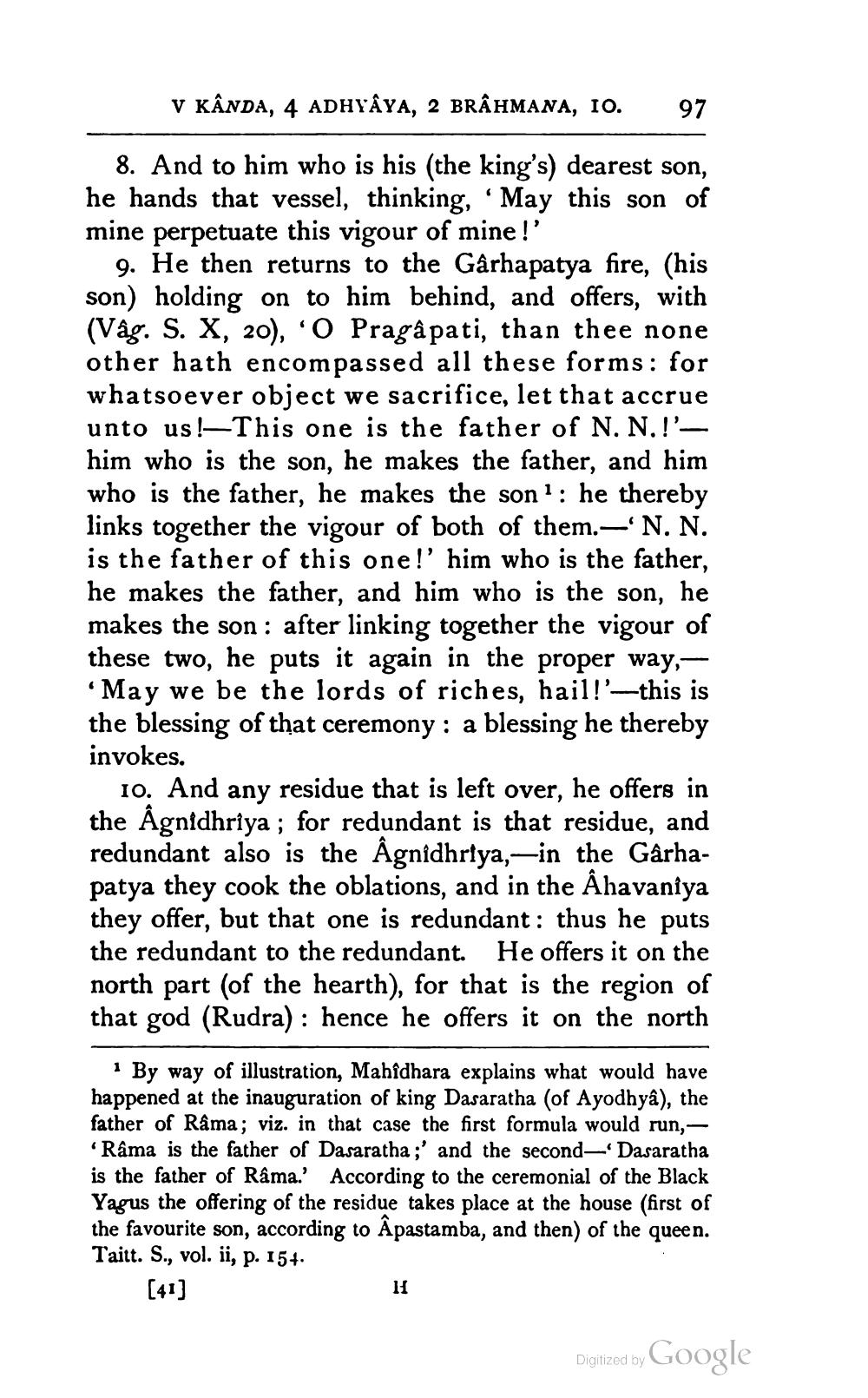________________
V KÂNDA, 4 ADHYAYA, 2 BRÂHMANA, 10.
97
8. And to him who is his (the king's) dearest son, he hands that vessel, thinking, 'May this son of mine perpetuate this vigour of mine!'
9. He then returns to the Gârhapatya fire, (his son) holding on to him behind, and offers, with (Vág. S. X, 20), 'O Pragâ pati, than thee none other hath encompassed all these forms: for whatsoever object we sacrifice, let that accrue unto us!—This one is the father of N. N.!'him who is the son, he makes the father, and him who is the father, he makes the son 1: he thereby links together the vigour of both of them.—'N. N. is the father of this one!' him who is the father, he makes the father, and him who is the son, he makes the son : after linking together the vigour of these two, he puts it again in the proper way,May we be the lords of riches, hail!'--this is the blessing of that ceremony: a blessing he thereby invokes.
10. And any residue that is left over, he offers in the Agnidhriya ; for redundant is that residue, and redundant also is the Agnidhriya,—in the Garhapatya they cook the oblations, and in the Ahavaniya they offer, but that one is redundant: thus he puts the redundant to the redundant. He offers it on the north part (of the hearth), for that is the region of that god (Rudra) : hence he offers it on the north
* By way of illustration, Mahîdhara explains what would have happened at the inauguration of king Dasaratha (of Ayodhyâ), the father of Râma; viz. in that case the first formula would run,
Rama is the father of Dasaratha;' and the second— Dasaratha is the father of Rama. According to the ceremonial of the Black Yagus the offering of the residue takes place at the house (first of the favourite son, according to Âpastamba, and then) of the queen. Taitt. S., vol. ii, p. 154.
[41]
11
Digitized by Google




